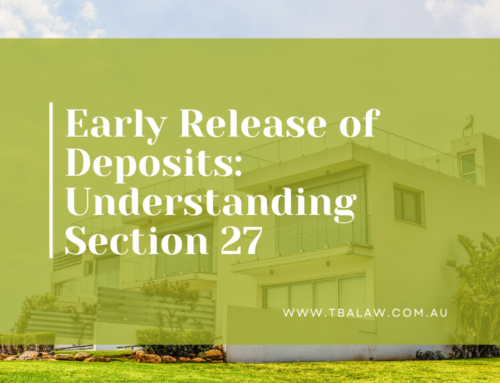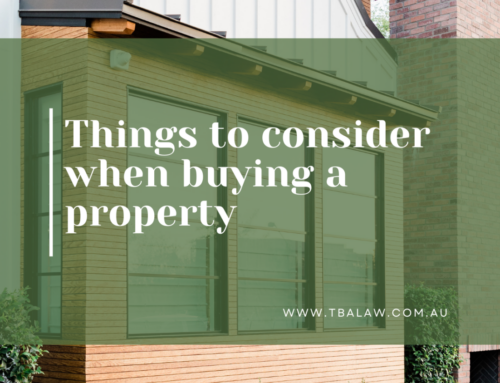Financing Your Property Purchase And The Hidden Costs You Need To Know
by Bridie Gavaghan
The first step is to assess your financial situation and really think about your desired standard of living when deciding how much you can actually borrow and repay. So we think that it’s good to be realistic about what type of repayments you can afford. You need to think about different interest rates, and if they do rise to be aware that your loan repayments actually can increase. It’s smart to give yourself a bit of breathing room, just be realistic about the process. Some different tools that we have found, personally, and what our clients have told us is, that budgets are a really good way to identify how much you can actually afford. This can be in terms of making your payments and also to pay for that deposit as well. We also have found that financial advisors are really great in setting out your budget and assisting you with it, and really just guiding you to see how much you can afford and what is realistic for you.

The second step we would suggest would be to get pre-approval from a lender. A preapproval is set out on what you can borrow. When you go to get this done, what will happen is the loan or whoever it is, might be a mortgage broker, it could be a bank. It depends on how you want to go about it if you want to go to a broker or directly to a bank that you do want to get a loan from. Either way, they’ll most likely ask for evidence of your current financial situation, and they’ll then assess your ability to actually repay that loan. So preapproval lasts for about three to six months, and it basically says that you’re eligible to apply for a loan up to a certain amount. It doesn’t commit you to a loan and it sets you an affordable price range. And lets vendors know that you’re serious about buying. So when you’re doing this, it is important to ask about any different fees and charges. And also pre-approval shouldn’t be confused with official approval. So we’ll get into that a bit later.
The third step we believe would be entering into the contract of sale and actually paying the deposit. So at this stage you would have received the contract and the Section 32, most likely from an agent or whatever it might be, however you’re purchasing the property. So this is when the payment of the deposit is due. So the deposit is usually about 10% of the purchase price, give or take. And it’s due either when you sign the contract or within the first few weeks of actually signing it. So if you require to take out a mortgage, it’s essential that you do have your finance approved before then. If your finance isn’t approved, we believe that a finance condition must be included in the contract because without this, you could be at serious risk.
A finance clause includes the name of the lender, the amount that you intend on purchasing, and the date by which you actually expect to receive that official confirmation of your unconditional approval. So a finance clause allows you to end the contract without any penalties if your loan isn’t approved by that date which you believe that it will be approved by. So an unconditional, on the other side, unconditional contract means that the sale actually must proceed. So if you default on the contract because your finance isn’t available, then the vendor might be entitled to force you to proceed or to forfeit your entire deposit and possibly sue for damages as well. So there is quite a lot of risks if you don’t have that. And there’s also the risk that that vendor might also be committed to further purchase. And if they default on their purchase, you might be liable for the costs and the loss, I guess, that they’ve suffered because you aren’t able to follow through with it.
Pre-approval and approval are quite different things, and it’s really important that you understand the difference between the two. So it is quite common for mistakes to occur where you might believe that your finance has been approved or when you unintentionally allow the finance condition to lapse. So some of these examples include you believing that pre-approval means that you’ve had your loan approved. You may also believe that all of the lenders requirements are met. You may allow the finance condition to lapse because of any of those mistakes. You also may fail to give the required notice. So you’ve got to meet that date that you’ve included. It’s really important that you do that. So if you’re giving late notice or not giving notice by that date, then you may, I guess be… Yeah, you do need to meet all of your dates and ensure that you are doing everything you can to get to that point. So you can also fail on that condition if you don’t pay your deposit. So this needs to be paid before that is up as well. And yeah, that they’re the most common mistakes.
Another problem that may come up or another situation that you might find yourself in is for people who have actually sold their current property that they’re living in. There’s a thing called a Section 27. So I’ll explain that a little bit as well. So you might decide that you’ve sold your property and you’re ready to purchase another house. So with your deposit that you’ve received from the purchases of your current house, you may decide that you want to use that deposit to actually fund your new purchase. It seems like a great idea, but we wouldn’t advise you to actually rely upon this because it’s not always guaranteed that you’ll get this amount before that settlement date.So this Section 27 of the Transfer of Land Act, it requires a statement written by the vendor, so you if you’re selling that property. And it includes a lot of details about the property and about any mortgage or caveat that might be lodged over that property.
So if there’s a mortgage, it’s also common practice to approach the bank, so whichever bank that mortgage is with, for a statement verifying those details of that mortgage. So that is where we have seen in the past a lot of delays come out of, because we’re waiting on correspondence from the bank, or it can just be a lengthy process and you don’t want to cause any delays in any purchase that you might be going ahead with because you’re waiting for the Section 27. Anyway, once you’ve got those details from the bank, if there’s a mortgage or any details of the caveat, you then need to sign that statement. So you will sign the statement and you’ll send it back to your conveyancer or your solicitor, and they will send it off to the purchasers’ representatives for the purchasers to sign. But it isn’t always is guaranteed that the purchasers will sign this. So they actually have 28 days to sit on the statement, and after that time, if a reasonable objection isn’t raised, then the deposit can be released. So you can have it back. But, again, it’s just quite risky to actually enter into a new contract relying upon that amount to come back into your account. We have seen a few people that have relied upon this and it hasn’t been able to get to their account by that date and they’ve suffered significant financial loss.
I will talk about some of the different costs when you’re actually purchasing the property. So there are a few different things that a lot of people don’t take into consideration. It’s a big process and it’s a big commitment. So we do suggest you get legal advice or financial advice before entering into one of these contracts. Yeah, so I guess some of the things that you have got to pay for include your illegal or conveyancing fees. So this can be anywhere between $1,000 to $1,500, just depends on where you go. And if you have a conveyancer, if you have a solicitor, there can be different fees. There are also other financial advising fees and commissions that you might have to pay. And if you are getting a loan, there could be establishment fees too. So it’s best to just check all of these things out. There are also other government charges. These include the registration fees on the transfer, the land transfer duty, which is also known as Stamp Duty and GST possibly as well. So they’re the main government charges.
And when we review Section 32s in contracts, we outline these different payments for you, and we can actually figure out exactly how much it will cost you. So it is a good idea to get that advice before you enter into a contract and take that into consideration when you are looking at your finances. There’s also, you choose to get a building or a pest inspection, there’s those fees too, and any other moving costs. We also think that it is really important to consider the ongoing costs of property. These can come around pretty much as soon as you move in and with all the excitement of getting your furniture and everything else, you might not think about the different repayments that you might need to make; the insurance; building contents, if that’s applicable to you; household bills; council rates; water rates; electricity. There’s just a lot of things that we think you need to make yourself aware of, and even land tax as well that you might have to pay if it’s not your principal place of residence.
We do think that financing is one of the biggest factors you should take into consideration when looking into purchasing a new property. It’s something that needs to really be taken seriously. And there are these different avenues and different resources to help you make the right decision.
If you’ve got any questions about any of the financing that you might have in your new property, send us an email or give us a call and we’ll definitely help you with what we can, with the government fees and all the other fees that we can actually advise you on, to make sure that you’re not in default with any contract that you might think of entering into. You can send your questions to admin@tbalaw.com.au or you can call us at 1300 043 103.





Leave A Comment